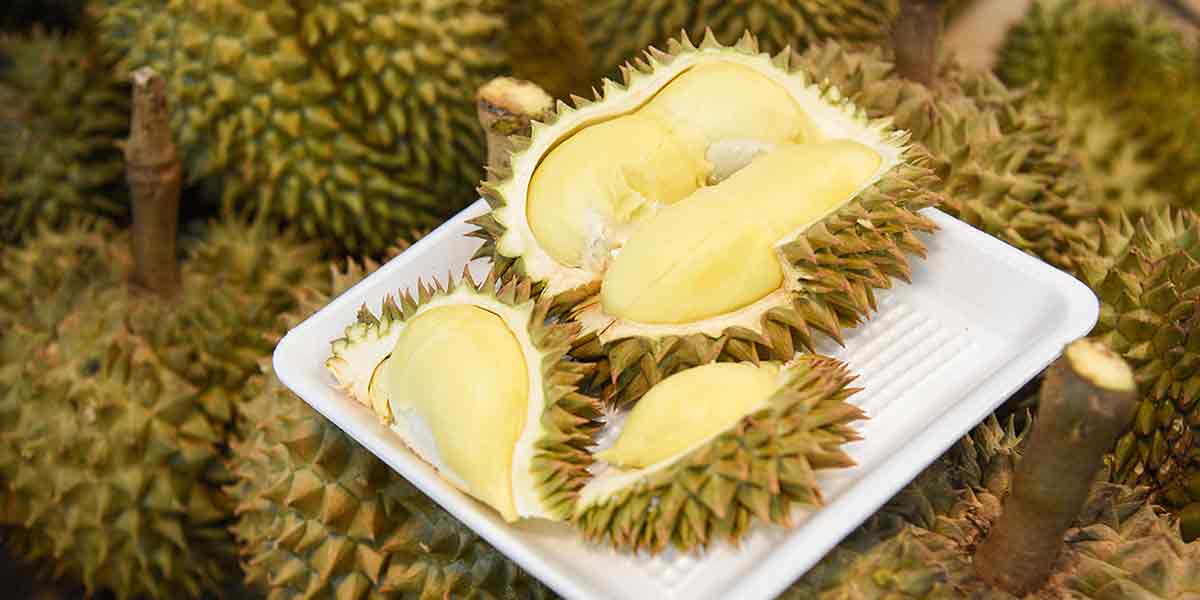In the realm of tropical fruits, there exists a culinary enigma that inspires passionate devotion and fervent aversion—the durian. Heralded as the “King of Fruits” in Southeast Asia, durian is not merely a fruit; it’s a sensory experience that evokes strong emotions and polarized opinions. Join us as we peel back the layers of this thorny delight to understand why durian stands as one of the most polarizing fruits in the world.
The Durian’s Regal Crown: A Tropical Monarch
Native to the rainforests of Southeast Asia, the durian (Durio) is a large, spiky fruit that can grow to impressive sizes. Its distinctive appearance, with thorn-covered husk and custard-like interior, makes it easily recognizable and a coveted delicacy in many parts of Asia.
A Symphony of Scents: The Durian’s Infamous Odor
One cannot discuss durian without addressing its divisive scent. Descriptions range from a blend of rotten onions and turpentine to notes of custard and almonds. The aroma is so potent that durian is banned in hotels and public transportation in some countries. Yet, to durian enthusiasts, the scent is an alluring prelude to the rich and complex flavors that await within.
Flavor Profile: A Taste Adventure Like No Other
For those who dare to try, the reward lies in a flavor profile that dances between sweet, creamy, and savory notes. The custard-like flesh is rich and indulgent, with undertones of sweetness that contrast with subtle hints of bitterness. Each durian variety offers a unique combination of flavors, creating a nuanced taste experience.
Culinary Versatility: From Street Food to Gourmet Delight
Durian is a versatile ingredient used in both sweet and savory dishes. From traditional Southeast Asian desserts to durian-infused pastries and even savory curries, the fruit’s distinctive taste adds a layer of complexity to culinary creations. Chefs around the world have embraced durian in gourmet contexts, pushing the boundaries of its application.
Cultural Significance: An Iconic Symbol
In Southeast Asia, durian is more than just a fruit; it’s a cultural icon with deep roots in local traditions. Durian festivals celebrate the harvest season, and the fruit holds a revered status in various cultural practices. Despite its divisiveness, durian remains an integral part of the culinary and cultural tapestry of the region.
Health Benefits: Nutrient-Rich and Packed with Goodness
Beyond its polarizing taste and aroma, durian boasts a nutritional profile that contributes to its popularity. The fruit is rich in vitamins, minerals, and dietary fiber. It provides essential nutrients such as vitamin C, potassium, and folate, making it a nourishing addition to a well-balanced diet.
Conclusion: A Fruit Beyond Compare
Durian’s status as the “King of Fruits” is not merely a title; it’s a testament to the fruit’s complexity and the dichotomy it represents. While some may be put off by its smell, many consider durian an exquisite delicacy worth savoring. The polarizing nature of durian, with its distinctive scent and rich flavor, adds a layer of intrigue to the world of tropical fruits, making it a captivating subject for culinary adventurers willing to embark on a gustatory journey like no other.

